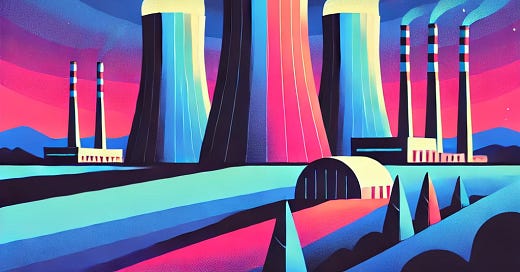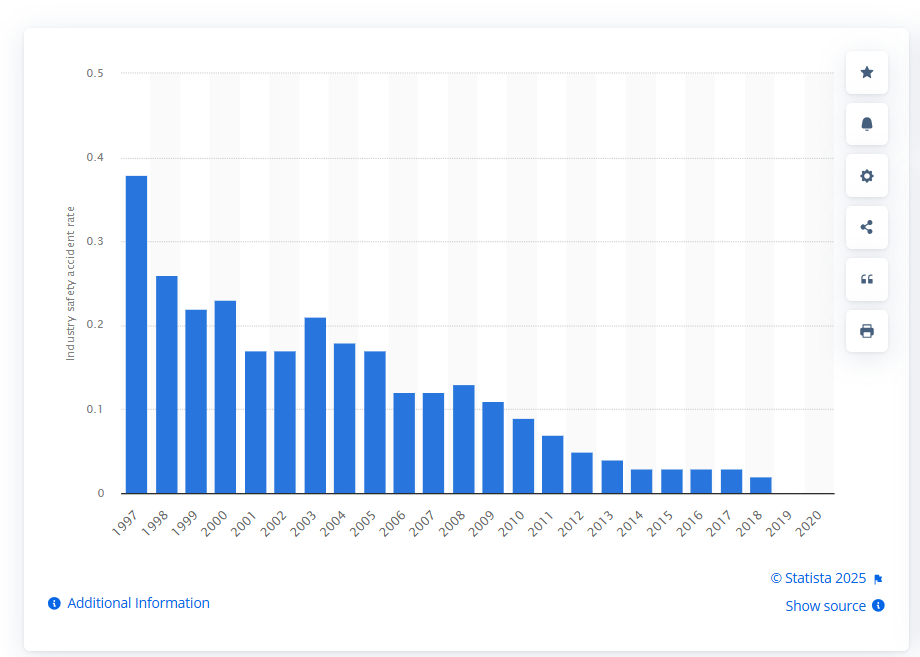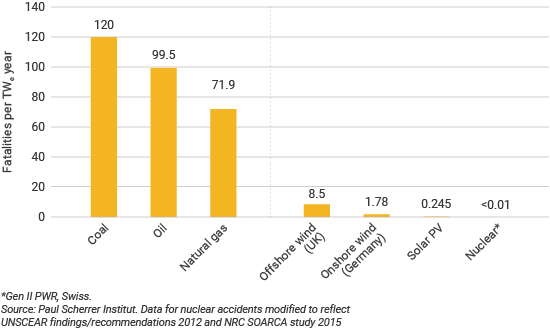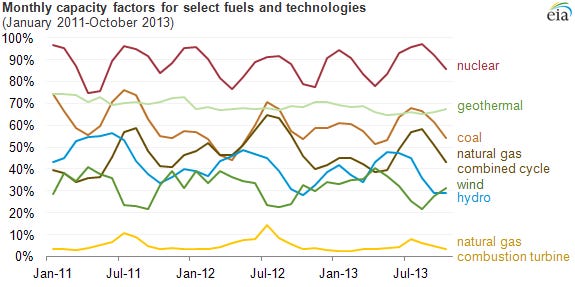In case you’ve been too distracted by the collapse of America to hear, Germany recently held a general election. Like every election these days, it was historic, had very high stakes, and made everyone’s buttcheeks clench with the force of a pneumatic press. The far right party saw an enormous surge in popularity, winning 21% of the vote, while the incumbents took a beating (So, pretty much how every election over the last two years has played out).
One such incumbent were the Greens, a party formed in the 1990s out of the anti-nuclear movement. During their recent stint in power, the Greens successfully completed what they originally set out to do, shut down every nuclear power plant in Germany. This is a victory they have been fighting for for 30 years, and the conclusion of a phase-out they initiated in 2000 when they were a part of a previous coalition.
On the face of it, a green party being opposed to nuclear energy makes sense. When we think of nuclear energy we think of meltdowns, waste, and that three-eyed fish from The Simpsons. Hell, I only got through one episode of Chernobyl because I saw that bit where the firefighter’s hand melts in his glove and threw up in my mouth. However, to anyone familiar with what nuclear energy is actually like, the phase out has been a baffling, decades long move in the wrong direction. The worries around nuclear energy aren’t well justified at all, but the costs of abandoning it are very real.
Nuclear is Clean
What’s so ironic about the Green party’s push against nuclear is how antithetical it is to the very objectives they claim to have. As you would expect, they run on a platform of caring about the environment. Despite this, they’ve spent an inordinate amount of time going after an energy source that produces very little CO2 equivalent. How little? Even less than solar.
Now, to Germany’s credit, the decrease in their reliance on nuclear energy has also seen an increase in their use of renewables.
That’s nice, but you know what would’ve been great? If they had replaced the fossil fuels with the renewables instead! All this time and effort, and the total share that fossil fuels contribute to Germany’s electricity has only dropped from 70% to 50%. It’s like their bike had a broken wheel, they replaced the functioning one, and now claim “Look how great the new wheel is doing!” as they zig zag down the street into oncoming traffic. Countries that invest in nuclear energy average way less CO2 equivalent emissions per Kilowatt hour of electricity produced. That’s why France produces only 30g of CO2 equivalent per Kilowatt hour, while Germany produces 6 times as much.
Some people might push back and say that the extra emissions are worth it in order to avoid the nuclear byproduct. Nuclear energy leaves behind radioactive waste that can stay around for centuries, just waiting for a post collapse civilisation to find it and get their faces Ark of the Covenant-ed. This sounds bad, but again, in comparison to fossil fuels it’s way less harmful. Use a nuclear reactor to produce electricity for 1 million people for a year, and you produce 3 cubic metres of nuclear waste. Use coal instead, and you produce 300,000 tonnes of ash, and 6 million tonnes of CO2.
Additionally, handling nuclear waste is not nearly as dangerous as we make out. It’s not like engineers are chucking it out the window like they’re a Victorian with IBS. The really dangerous stuff only makes up 3% of the waste, and is buried deep underground in special facilities where no ordinary person will find themselves. After 1,000 to 10,000 years, it returns to the radioactivity of the originally mined ore. The other, less hazardous waste can be kept near the surface, because it’s only dangerous for tens of years. Fossil fuels, by comparison, have their waste dumped into the outside air, which I’m told we come into contact with all the time.
Nuclear is Safe
The shadow that Chernobyl casts over Europe’s opinion of nuclear is long and dark. People are worried that all it takes is a natural disaster, a buggy computer program, or an intern falling asleep at his desk to ignite an atom bomb that deletes a large portion of the their country.
An understandable fear, but it’s one that needs updating. First, it’s worth pointing out that the Chernobyl disaster happened at a power plant built in the 70s, which was presumably made of twigs and asbestos. Unsurprisingly, nuclear energy has come a long way since then. In all of nuclear energy’s history, it has only killed hundreds of people, with most of those accidents happening in the previous century. Accidents have gone down, despite the number of operational nuclear reactors staying pretty flat since the late 80s. In the US, accident rates have been consistently falling, even reaching zero.
Compare this to other sources of energy and it’s no contest. The pollution caused by fossil fuels totally dwarfs the harm caused by nuclear energy. Air pollution alone is estimated to kill 7 million people a year. If nuclear was killing that many people, it’d be all we talk about! Nuclear is unfairly treated as the risky option, despite it being the safest. It’s really the air travel of electricity production.
Makes you wonder - what kind of dork gets killed by a solar panel?
Nuclear Never Sleeps
Different energy sources have different capacity factors, which is the ratio between an energy source’s actual output, and its theoretical limit. So, for example, if I had a wind farm that would produce 1,000 MWh of energy if all the blades were spinning at maximum speed all the time, but it actually produces 300MWh in the real world, my wind farm has a capacity factor of 300/1000, or 30%. Again, nuclear wins here.
Go home, natural gas combustion turbine, who even invited you!?
This landslide victory is because nuclear power plants never stop. When you sleep, they’re generating electricity. When you eat breakfast, they’re generating electricity. When you spend your whole weekend reading about nuclear energy, they’re generating electricity.
Other energy sources aren’t like that. Renewables suffer because the wind only blows some of the time, and the sun is only out for half of the year. In fact, here in the UK, it only comes out once every ten years when we sacrifice a young virgin to Ra at the top of the London Eye.
All this is to say that nuclear is very reliable. Which explains why nuclear forward countries like France and Sweden export so much energy elsewhere. Germany is now a net importer of electricity, and is stuck buying natural gas from Russia. So, their energy insecurity has led to a bizarre situation where they are funding both sides of the war in Ukraine - a situation which would’ve been less dire had they weaned themselves off natural gas instead of nuclear energy.
In fact, you might find it interesting to know the Chancellor that initiated this phase-out back in 2000 was Gerhard Schröder of the SPD. A man who before stepping down as chancellor, signed the Nord Stream Pipeline deal, and became chairman of the Russia-state controlled gas company in charge of the project just a few weeks later. As you would expect, he’s also a good friend of Vladimir Putin’s.
Aww, I bet they’re like JD and Turk from Scrubs!
Looking Forward
Fortunately, it seems that Nuclear Power is having a bit of a renaissance, and other countries are getting behind sensible, data driven policy. The US has further committed itself to a nuclear future, and the UK is also getting in on the action (which is great because I live here, and it’d be nice not to feel guilty about forgetting to switch off the lights).
Most importantly, I’ll get to start the hot new religion of the 2030s. Our enemies will be stamped out, and our ascendance will be incandescent.
“Come on in and praise Atom, guys! The water is warm!”











